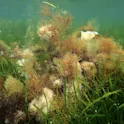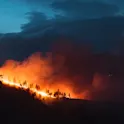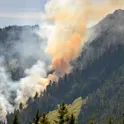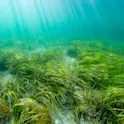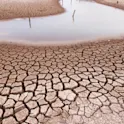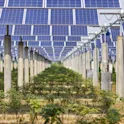
Climate action
08 Aug 2023
Antarctic extreme events: ‘All-time records are being shattered not from decades ago, but from the last few years and months’
By Prof Martin Siegert, University of Exeter (Cornwall) Image: Shutterstock.com 42 governments around the world have agreed to protect Antarctica’s environment. While the main focus has been on operational activities in Antarctica, global warming caused by fossil-fuel burning by these (and other) countries has left Antarctica on the brink of irreversible change. A new study published in Frontiers in Environmental Science has revealed that, in addition to the influence of gradual global heating, Antarctica is increasingly affected by extreme environmental events; a recognized and predicted outcome of our heating world. Writing as part of Frontiers’ guest editorials series, the study’s lead author – Prof Martin Siegert, deputy vice chancellor of the University of Exeter (Cornwall) – discusses how without there being a rapid shift to net-zero greenhouse gas emissions by 2050, the Antarctic environment will experience ever more drastic changes. Extreme weather events appear to be increasing in size and occurrence, with disastrous outcomes for lives and livelihoods, whether it be from intense heatwaves, severe droughts, deluge rainfall, flooding, and deep storms. All-time records are being shattered not from those of decades ago, but from the last few years and months, exemplifying the human-induced forces we are subjecting our planet […]

